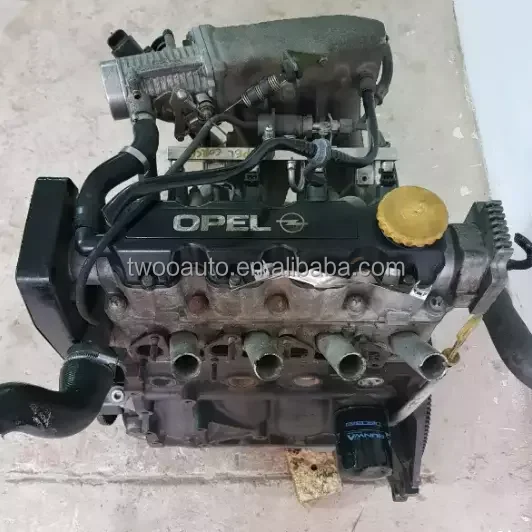Opel Corsa 1.4 Engine Price Comparison: Unsurpassable Bargains Wait For at Vehicle Components Center
Engine Acquiring Specialist Tips on Picking the Right Engine for Your Details Demands
Picking the right engine for your specific demands entails an intricate interaction of variables that surpass simple horse power figures. From power output to fuel efficiency, the decision-making procedure can be discouraging. Recognizing the subtleties of engine types, sizes, and their compatibility with your vehicle is essential. There are experienced pointers that can assist browse this terrain with confidence. By diving into the complexities of power versus efficiency, reviewing gas scores, and budgeting for long-term prices, one can genuinely enhance their engine selection.
Power Vs. Performance: Finding the Equilibrium
When choosing an engine, it is essential to strike a balance between power and efficiency to fulfill your certain requirements successfully. Power refers to the engine's capacity to create power for propulsion, figuring out factors like acceleration, towing capability, and total performance - Opel Corsa 1.4 Engine Price. On the various other hand, efficiency connects to just how well the engine utilizes gas to create power, affecting variables such as fuel economic climate and ecological friendliness
Accomplishing the right equilibrium between power and effectiveness is essential since an engine that is as well effective may take in too much gas, leading to greater operating expenses and unneeded stress on the environment. Alternatively, an engine that prioritizes efficiency over power may cause slow-moving efficiency, particularly in demanding scenarios like lugging heavy tons or driving uphill.
To make an educated choice, take into consideration elements such as your typical driving conditions, the intended use the lorry, and your personal choices. By evaluating your top priorities and requirements, you can choose an engine that strikes the excellent equilibrium between power and efficiency, making certain optimal performance while reducing ecological impact and operating costs.
Understanding Engine Dimension and Kind
To additionally improve the selection process of an engine that strikes the ideal equilibrium between power and effectiveness, it is important to dig into the complexities of comprehending engine size and kind. Engine dimension refers to the overall volume of air and gas that can be pressed through the engine cylinders. It is generally determined in litres or cubic centimeters. Larger engine sizes generally lead to more power outcome yet can also bring about lowered gas effectiveness. On the various other hand, smaller engine sizes are typically much more fuel-efficient yet might compromise some power.
Additionally, engine kind plays a vital function in figuring out the efficiency attributes of an engine. Typical engine types consist of inline engines, V engines, and rotary engines, each with its distinct advantages and disadvantages. The engine type impacts elements such as the engine's size, weight distribution, and power delivery. Comprehending the interaction between engine size and type is important in picking an engine that aligns with your details demands and priorities, whether it be power, efficiency, or a balance of both.

Consider Your Automobile's Needs
If you are looking for an engine for a durable truck that will be made use of for towing, you will require an effective engine with why not try these out high torque abilities. On the various other hand, if you are picking an engine for a small car mostly used for city commuting, gas efficiency may be an extra essential element to take into consideration.
In addition, the surface on which the automobile will largely operate need to influence your engine choice. If you frequently drive in uneven or mountainous areas, a robust engine with great climbing power will be needed. On the other hand, for flat terrains, an extra fuel-efficient engine may suffice. By aligning the engine specifications with your automobile's demands, you can make sure that your automobile operates efficiently and fulfills your performance expectations.
Assessing Gas Effectiveness Ratings
Analyzing fuel efficiency scores is a vital element of picking the ideal engine for your vehicle, ensuring expense savings and ecological sustainability. Fuel effectiveness ratings, normally measured in miles per gallon (MPG) for fuel engines or home kilowatt-hours per 100 miles (kWh/100 miles) for electric engines, indicate how much a car can take a trip on a specific quantity of gas or electrical energy. Greater MPG or lower kWh/100 miles worths signify a lot more efficient engines, equating to reduced fuel prices and lower carbon discharges.
Furthermore, compare different engine choices within the very same lorry course to identify the most economical choice. Elements such as engine size, weight, aerodynamics, and hybrid or electric abilities can all influence fuel efficiency.
Budgeting for Long-Term Costs
Tactically preparing for long-lasting costs is imperative when selecting an engine, guaranteeing financial sustainability over the car's lifespan. While the initial purchase price of an engine is a significant factor, it is crucial to consider the lasting prices related to maintenance, repair work, and fuel intake. Going with an extra fuel-efficient engine may have a higher upfront price however can lead to substantial financial savings with time. Routine maintenance, such as oil changes, filter substitutes, and tune-ups, is vital to maintain the engine running efficiently and effectively, reducing the threat of expensive repair work down the line.
Furthermore, looking into the accessibility and price of substitute components for the chosen engine is vital in budget plan planning. Engines with budget-friendly and conveniently available components can significantly affect lasting maintenance costs. In addition, thinking about the engine's longevity and expected life expectancy can aid avoid unforeseen substitute costs in the future. By thoroughly budgeting for these lasting expenditures and factoring them into the decision-making process, people can pick an engine that not only meets their instant requirements yet also remains economical throughout its life-span.
Final Thought
Finally, selecting the right engine for your particular requirements needs balancing power and efficiency, understanding engine size and type, considering your vehicle's needs, reviewing gas performance rankings, and budgeting for long-lasting expenses. By very carefully taking into consideration these elements, you can make sure that you select an engine that meets your demands and offers optimal efficiency for your lorry.
To further improve the choice Get More Information process of an engine that strikes the optimum balance in between power and effectiveness, it is vital to delve right into the complexities of understanding engine dimension and type. Engine dimension refers to the total quantity of air and fuel that can be pressed through the engine cyndrical tubes. Typical engine kinds include inline engines, V engines, and rotating engines, each with its distinct benefits and disadvantages. Understanding the interplay in between engine size and kind is important in picking an engine that lines up with your details requirements and top priorities, whether it be power, efficiency, or an equilibrium of both.
